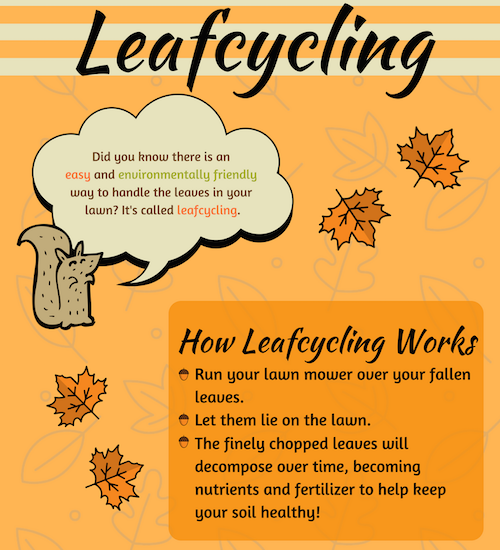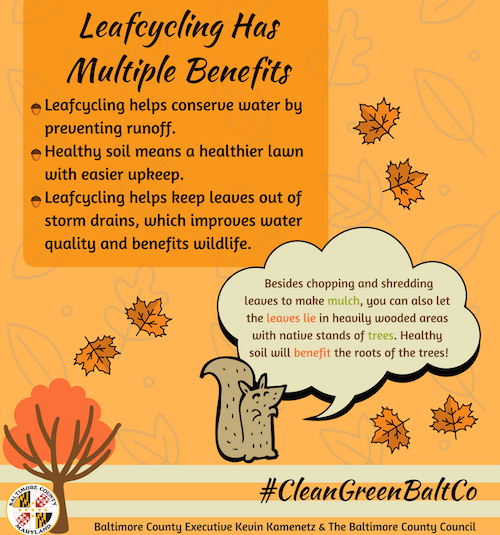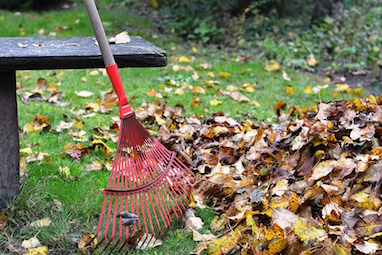I hate raking and bagging leaves. I hate it almost as much as I hate to watch my kids do it badly while whining and complaining.
That’s why it was lovely to hear Baltimore County say it’s actually better to leave those leaves because it helps grass grow.



The county says:
“As an alternative to raking and bagging leaves, simply run your lawn mower over your fallen leaves and let them lie on the lawn. The finely chopped leaves will decompose over time, becoming food for the microbes that populate a healthy soil. A “mulching” lawn mower is recommended for leafcycling, but is not required. These mowers are designed to chop the leaves multiple times before discharging the mulched leaves back on the lawn. If using a standard lawn mower, it is recommended that you run over the fallen leaves at least twice to ensure the pieces are small enough to promote more rapid decomposition.
Leafcycling helps conserve water by preventing runoff and adds valuable nutrients to your soil. Leafcycling also reduces the need for Baltimore County to collect and process this material, preventing pollution and saving tax dollars. Plus, think of all the time and effort you will save by not having to rake and bag all of those leaves.
Besides chopping and shredding the leaves to make mulch, you could let the leaves lie, especially in heavily wooded areas with native stands of trees. The leaves will enrich the soil’s nutrients and quality for maximum root growth. Also, as you clean up your garden in the fall, till or dig leaves into vegetable and annual flowerbeds to improve the soil quality.
Another method is to chop the leaves with a lawn mower and collect this mulch for distribution around annual plants and garden beds, as well as under shrubs, hedges and trees. To start, a layer of about four to six inches is recommended as the leaves will settle after a few rains, creating an ideal three inch layer. The mulch will keep the soil moist and protect the plants’ roots.
Composting leaves at home is another great way to handle this material. Extra leaves can be composted in a pile or compost bin to help create a nutrient-rich soil amendment that can be used all over your yard and garden.”
(Let’s just not talk about how much pollution those gas-powered mowers produce, though…)
-Kris Henry,
The Towson Flyer

